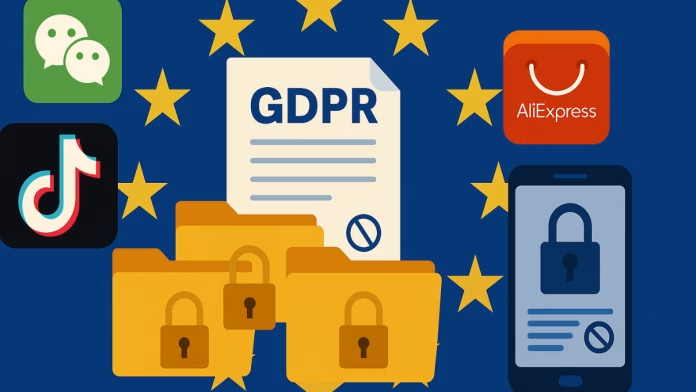European Privacy Rules Ignored by Chinese Tech Giants
A new legal complaint has been filed against three of the world’s most popular Chinese apps — TikTok, WeChat, and AliExpress. A privacy rights group called noyb, based in Vienna, has accused these apps of breaking Europe’s privacy law known as the General Data Protection Regulation, or GDPR.
This law is meant to give people more control over their personal data. It forces companies to be clear about what data they collect, why they collect it, and how users can see it. But according to the complaints filed, these Chinese apps have failed to follow the basic rules of the GDPR.
The privacy group sent each complaint to a different country’s data protection authority. Authorities in Greece are investigating TikTok. AliExpress is facing scrutiny in Belgium. WeChat’s case is in the Netherlands. The privacy group says that all three apps refused to respond properly when users asked to see their own data.
GDPR gives every person in the EU the right to know what data companies are storing about them. If someone makes a request, the company must give a clear, full, and readable response. But in this case, the companies either ignored the requests or gave answers that were confusing or broken.
Users Blocked from Accessing Their Own Data
The problem began when individual users tried to exercise their legal right to access their personal data. GDPR empowers every user to ask a company what data it has stored about them and how it uses that data. But TikTok, AliExpress, and WeChat each responded in ways that go against these rules.
TikTok responded to one such request with vague and confusing information. The user could not understand what data had been collected or how it was being used. AliExpress sent files in a strange format that only opened once and then stopped working. WeChat did not respond at all.
The privacy group says this is not acceptable. These are not small apps with a few users they are global platforms with millions of users across Europe. If they do not follow the rules, it sets a dangerous example for other companies.
The GDPR clearly says that users must be able to access their personal data easily. It is a basic right under European law. Ignoring requests or making it difficult to understand the data is a serious violation. The group has asked authorities in all three countries to investigate the cases and give official rulings. They have also requested that fines be issued to the companies to discourage future violations.
What the Law Says and What the Apps Did Wrong
Article 12 says companies must respond in a clear, quick, and easy-to-understand way when someone asks about their personal data.
Article 15 gives users the full right to see all their personal data. This includes where it came from, how it is being used, and who it might be shared with. The company must also give a complete copy of the data if asked.
🌐 Digital Guardian Awakens—Google’s Big Sleep AI Shuts Down Stealth Cyber Invasion
In all three cases, noyb says the companies failed to follow both of these rules. TikTok didn’t provide clear answers. AliExpress sent a file that was not useful. WeChat didn’t reply at all.
The group behind the complaint believes these actions show that the apps do not take Europe’s data protection laws seriously. They believe strong action is needed to send a message that ignoring data privacy laws will not be allowed.
For now, the authorities in Belgium, Greece, and the Netherlands are reviewing the complaints. The privacy group has made it clear they expect proper legal action and possible penalties. The outcome of this case could affect millions of users and will be watched closely across Europe.
This case raises a larger question — are foreign tech companies doing enough to respect European users and the laws designed to protect them?
